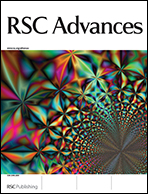Rapid prototyping of microfluidic modules with a water-developable dry-film photoresist bondable to PDMS†
Abstract
A new, rapid, environmentally friendly prototyping method is presented. This method is based on the use of a negative, water-developable dry-film photoresist as the structural material. In this method, the photomask is prepared by printing microchannel patterns to either a sheet of Vellum paper or a transparency by an office laser printer. It follows by transferring the patterns to the dry-film photoresist by low-dose UV exposure. The patterned photoresist is developed by spraying with pressurized warm


 Please wait while we load your content...
Please wait while we load your content...